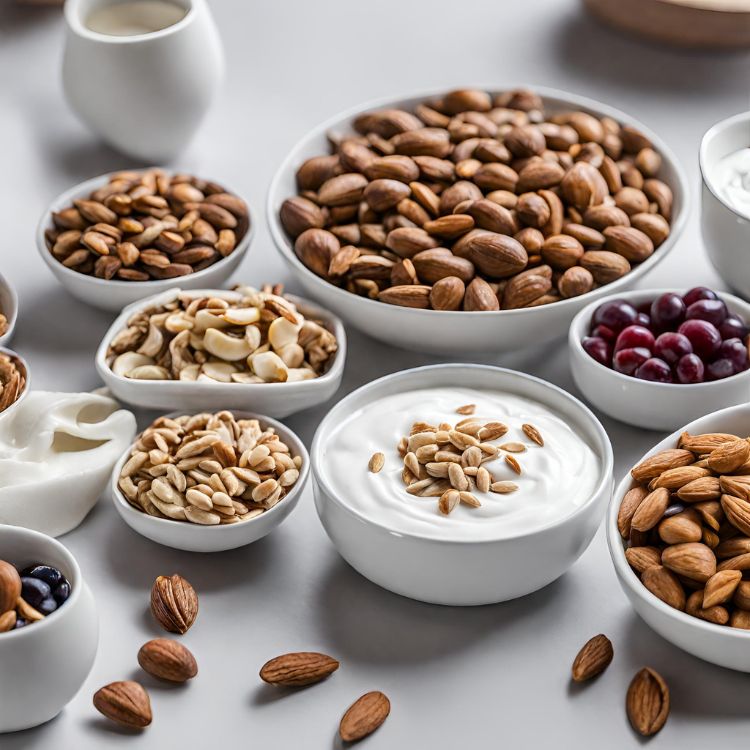
Embarking on a weight loss journey while juggling a demanding career can be daunting, especially for women who don’t want to sacrifice their favorite foods. This article offers 13 practical and simple steps tailored for career-focused women. These strategies are designed to integrate seamlessly into a busy lifestyle, enabling effective weight management without the need to give up culinary pleasures. From mindful eating to smart snacking and regular, enjoyable exercise, these tips will help you achieve your weight loss goals while thriving in your professional life.
Redefining Portion Sizes

Portion control is not just about eating less; it’s about eating smart. By choosing smaller portions, you can enjoy a variety of foods without the guilt. A balanced meal should have a healthy mix of protein, carbs, and vegetables. For instance, instead of a large serving of pasta, opt for a smaller portion complemented with a side of grilled vegetables and lean protein like chicken or fish. This process not only ensures a nutrient-rich diet but also reduces calorie intake. Utilize visual cues for portion sizes: a fist-sized amount for carbs, a palm-sized portion for protein, and a handful of vegetables. By making these adjustments, you’ll be able to manage your weight effectively while still enjoying the flavors you love.
Incorporating Healthy Substitutes

When it comes to healthy eating, making small changes can have a significant impact. For example, simply using healthier alternatives to replace a few high-calorie ingredients will transform your dishes into nutritious and delicious meals. In baking, substituting butter with unsweetened applesauce or ripe mashed bananas can drastically cut fat and calories while adding fiber and vitamins. By making these substitutions, you will improve your dishes’ nutritional profile and introduce new textures and flavors. Experiment with whole grain flours, natural sweeteners like honey, and plant-based milks to make your favorite recipes healthier. This way, you’re not sacrificing taste for health; you’re enhancing it.
Mindful Eating Practices

Mindful eating is about fully experiencing your food and eating with intention and attention. It involves noticing your food’s colors, textures, and flavors and listening to your body’s hunger and fullness cues. Mindful eating can help reduce instances of overeating and increase satisfaction with meals. It’s about creating a healthy relationship with food, where you eat to nourish and satisfy your body. To practice mindful eating, start by sitting at the table, eliminating distractions, and focusing on your meal. Chew slowly and appreciate each bite. This approach can lead to better digestion, reduced stress, and a more enjoyable eating experience.
Hydration Before Meals

Drinking water before meals is a simple yet effective strategy for managing hunger and aiding weight loss. Water is a superstar in proper bodily functions and helps fill you up before eating, leading to reduced caloric intake during meals. It’s crucial to differentiate between hunger and thirst, as these signals can be easily confused. Staying well-hydrated throughout the day can also boost your metabolism and support overall health. Aim to drink a glass of water 20-30 minutes before each meal to curb appetite and ensure you’re adequately hydrated.
Smart Snacking

If done wisely, snacking can be part of a healthy diet. Snacks high in protein and fiber are the best choice because they can keep you satiated and prevent overeating at meal times. Instead of reaching for chips or cookies, opt for healthier options like almonds, Greek yogurt, or a piece of fruit. Choosing foods like these provides essential nutrients and helps to maintain stable blood sugar levels. Planning your snacks and having healthy options readily available can make a significant difference in your overall diet and help you stay on track with your weight loss goals.
Regular, Enjoyable Exercise

Exercise is a cornerstone of a healthy lifestyle and can be enjoyable. Finding activities you love is critical so it doesn’t feel like a chore. Whether it’s dancing, cycling, swimming, or hiking, regular physical activity can boost your metabolism, improve your mood, and enhance your overall well-being. Choosing exercises that fit your lifestyle and preferences is essential so you’ll be more likely to stick with them long-term. Incorporating variety in your workout routine can keep it exciting and prevent boredom. Remember, the goal is to move your body and have fun while doing it.
Balancing Your Meals

A balanced meal is a cornerstone of good nutrition and is essential for weight management. You want to include a variety of food groups to provide a range of nutrients. A good rule of thumb is to fill half your plate with vegetables, a quarter with lean protein, and the remaining quarter with whole grains or starchy vegetables. This combination ensures you’re getting a healthy mix of carbs, protein, and fats, along with vitamins and minerals. Eating a variety of foods not only provides nutritional benefits but also makes meals more enjoyable and satisfying.
Learning to Read Labels

Reading food labels is required to make informed choices about what you eat. They provide important information about the nutritional content of food items, including calorie counts, macronutrients (fat, protein, and carbohydrates), and micronutrients (vitamins and minerals). Understanding how to interpret this information can help you select foods that align with your health goals, such as reducing sugar intake or increasing fiber. Pay attention to serving sizes, as they can be misleading. Learning to read labels can empower you to make healthier decisions and understand how different foods fit into your overall dietary pattern.
Cooking At Home

Cooking at home lets you control portion sizes and ingredients, making it easier to maintain a healthy diet. You can choose fresh, whole foods and avoid the processed additives found in many restaurant dishes. Home-cooked meals can also be tailored to your dietary needs and preferences, allowing you to experiment with flavors and ingredients to see what works best for you. Moreover, cooking at home can be a rewarding experience that enhances your culinary skills and contributes to a healthier lifestyle.
Consistent Meal Times

Eating at regular intervals can help regulate your body’s energy levels and hunger signals. Consistent meal times help maintain a steady metabolism and prevent binge eating or snacking on unhealthy foods. Establish a routine that fits your daily schedule and stay consistent with it as much as possible. This regularity can improve your body’s natural hunger cues and support better digestion and nutrient absorption, aiding in weight management and overall health.
Prioritizing Quality Sleep

Quality sleep is vital for weight management and overall health. It affects hormones that regulate hunger and satiety, influencing appetite and food choices. To improve sleep quality, consider setting a consistent sleep schedule and creating a restful environment free from distractions like electronics. Practices like reading or meditation before bed can help unwind and signal your body that it’s time to sleep. Prioritizing good sleep hygiene can enhance your ability to lose weight and maintain a healthy lifestyle.
Managing Stress for Better Rest

Stress management is vital to health and can directly impact your sleep quality and weight. High stress levels can lead to self-sabotage with unsavory coping habits like emotional eating and disrupted sleep patterns, hindering weight loss efforts. Fortunately, many techniques like meditation, yoga, and deep breathing can help mitigate stress and promote relaxation. Regularly practicing these activities can improve your mental well-being, leading to better sleep and more effective weight management. Integrating these stress-reducing actions into your daily schedule over the unhealthy alternatives can profoundly impact your general health and capacity to sustain a healthy weight.
The Role of Recovery in Weight Loss

Recovery is an often overlooked aspect of weight loss and fitness. It allows your body to heal and strengthen, improving your physical performance and preventing injury. Incorporating rest days and low-intensity activities into your routine can help balance the stress of exercise with necessary recovery. Activities like stretching, gentle yoga, or walking can aid in muscle recovery and prevent burnout. Ensuring adequate rest and recovery supports sustainable weight loss




